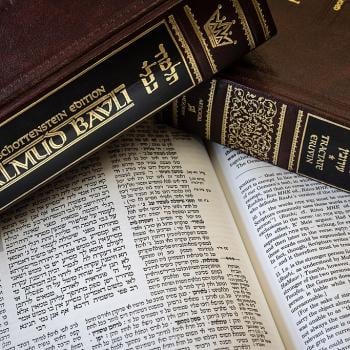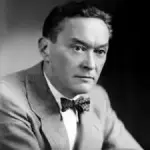 In the 21st century the idea that the United States was founded as a Christian nation is alive and well. One might even say that this view of the American past is thriving. Those who believe that America is a Christian nation are serious about their faith in God and country. They have an earnest desire to influence the nation for Christ and celebrate the freedoms we enjoy as citizens of the United States. They find the study of history as one way of promoting this belief.
In the 21st century the idea that the United States was founded as a Christian nation is alive and well. One might even say that this view of the American past is thriving. Those who believe that America is a Christian nation are serious about their faith in God and country. They have an earnest desire to influence the nation for Christ and celebrate the freedoms we enjoy as citizens of the United States. They find the study of history as one way of promoting this belief.
But when studying the American past, many Christian nationalists fail to see the difference between the study of history and the study of theology. This is especially relevant in the way that many authors invoke the doctrine of providence in their understanding of the past.
Writers extolling a providential view of American history begin with the theological premise that God is sovereign over his creation and continues to order the universe that he created. There are no coincidences. God has intervened in human history in miraculous ways in order to accomplish his purposes.
If God is indeed ordering the universe according to his plan, then the job of the historian, according to some of the defenders of Christian America, is to identify and proclaim his purposes as it played out in the past. The historian has a prophetic role. She is not unlike the Old Testament prophets who reminded Israel of God's history of faithfulness to them in the hopes that the people might turn to God and repent of their sins in the present and the future.
What does this type of providential history look like in the historical narratives written by the defenders of Christian America? How do providential themes intersect with the details of the American past? Let's examine one example that is quite popular among Christian providential historians: George Washington's famous late-night retreat from Long Island during the summer of 1776.
On the evening of August 29, following a day of defeat at the so-called Battle of Long Island, the American troops found themselves healing their wounds and trying to regroup. The British army was entrenched in the earth only yards away from the American fortifications on Brooklyn Heights, hoping to deal the final blow to this so-called war for independence. As nightfall came, Washington's troops began to abandon their posts in order to parade to ferries that would take them across the East River and to the safety of Manhattan. Between 7:00 p.m. and the following morning Washington had evacuated nearly 10,000 Continental troops. The commander was aided by a dense fog that lingered over the East River long enough to shield the American ferries from the sight of the British navy.
Peter Marshall and David Manuel, the authors of a wildly popular work of providential history entitled The Light and the Glory, have argued that the fog was a sign of God's providence. It was "the most amazing episode of divine intervention in the Revolutionary War." The lesson learned from this event was an obvious one: "The Continental Army had suffered a severe defeat, with some fifteen hundred casualties. Yet, thanks to the storm, a wind, a fog, and too many human 'coincidences' to number, there still was a Continental Army!"
Was God's providence evident in this event? American Christians certainly believed that it was, but I doubt whether many English Christians would have thought so. Who had the better insight into God's purposes?
This is why it is so difficult to write providential history. An appeal to providence in a historical narrative like that of the East River fog of 1776 fails to help us better understand what happened on that day, and to aid our understanding is one of the historian's primary tasks.
Can a Christian claim to know God's purposes in history in the way that many Christian nationalists suggest? I remain skeptical. If God's rule extends over all of history, and his providence subsumes all vents, then how can we say that some events—such as those that led to the development of the United States—are more providential than others?
It seems that Christian providentialists who write about the past must be willing to reconcile their certainty about God's plan for America with St. Paul's words in 1 Corinthians 13: "For now we see in a mirror dimly, but then face to face; now in part, but then I shall know fully just as I have been fully known." Providential historians offer a reading of American history that assumes an understanding of the secret things of God, things that sinful men cannot fathom outside of the scriptures.
Christian historians would do better to approach their task with a sense of God's transcendent mystery, a healthy dose of humility, and a hope that one day soon, but not now, we will all understand the Almighty's plans for the nations. We should again take comfort in the words of St. Augustine: "When we arrive at that judgment of God, the time of which in a special sense is called the Day of Judgment . . . it will be apparent that God's judgments are entirely just."
2/23/2011 5:00:00 AM





